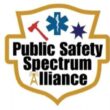Border rebanding plans take shape
The Federal Communications Commission has taken the plunge and issued a Notice of Proposed Rule Making that seeks to create a new 800 MHz band plan for the Canadian border regions. The proposal is based on maintaining the same allocations between the two countries.
The portion of the NPRM that is most significant, however, concerns the proposed allocation along the New York-Pennsylvania border. This proposal, as well as the commission’s discussion regarding the secondary use of cross-border frequencies, dictates that border licensees must closely examine the potential impact on their allocations, including potential co-channel and adjacent channel allocations.
The NPRM was issued at the FCC’s Wireless Bureau level, which indicates the rapidity with which the FCC would like to resolve the issue.
In addition, the Transition Administrator (TA) has filed comments with the FCC regarding the 800 MHz allocation in Puerto Rico, where Sprint Nextel is not the 800 MHz C Block licensee and does not have an iDEN system. Rather, an islandwide iDEN system is operated by North Sight Communications, the C Block licensee. (Disclaimer: We represent North Sight.)
A further complication is that one of the auction and site-specific licensees is Preferred Communications. Preferred claims it is entitled to move into the ESMR Block (above 862 MHz), which means that there are not enough channels in the block to accommodate all of the licensees claiming eligibility. The TA’s plan is designed to resolve the allocation problem. The FCC expects to put the proposal on Public Notice shortly after receiving comments on the Canadian Border NPRM.
The TA’s plan assumes that Preferred will remain a licensee. In fact, Sprint Nextel claims that Preferred is not eligible to move into the ESMR Block (a position supported by North Sight). Another complicating fact is that the FCC presently is conducting an administrative hearing to determine whether Pendleton Waugh, previously convicted of federal charges related to FCC licensing scams, improperly has an interest in Preferred. Altogether, Puerto Rico rebanding represents a complicated and intriguing soap opera that will play out in early 2008.
Only the Mexican border area currently does not have an 800 MHz rebanding proposal. Mexico represents a far different situation than Canada because U.S. licensees use frequencies offset by 12.5 kHz from allocations in the rest of the U.S. The FCC’s discussions with Mexico continue, but no resolution is imminent.
Meanwhile in the U.S., rebanding agreements are proceeding apace. Numerous National Public Safety Planning Advisory Committee licensees are signing agreements in many parts of the country; radios are being flashed with new software, reprogrammed or replaced; the TA is holding implementation meetings in various parts of the country; and a few licensees have actually finished their reconfigurations.
What everyone recognizes at this point is that, even without the border areas considered, rebanding will not be completed anywhere near the June 2008 deadline — although many individual licensees will be finished. For example, at one recent TA implementation meeting, a representative from California indicated that the first “touch” to all of the state’s radios wouldn’t be completed until well after 2010. Similarly, it is clear that the states of Florida and Kansas will have rebanding completion dates well after the supposed deadline.
Other licensees are struggling to meet the FCC’s planning and negotiation deadlines issued in September. Many Wave 3 licensees have requested extensions of these dates, as vendors simply are unable to deliver cost estimates within the new deadlines. Similarly, the suggestion that a successful negotiation regarding a large system can be reached within 30 days is simply folly. Unless licensees immediately accept whatever Sprint Nextel offers, or unless the carrier suddenly takes a different position with regard to delivered cost estimates, it simply can’t be done.
Alan Tilles is counsel to numerous entities in the private radio and Internet industries. He is a partner in the law firm of Shulman Rogers Gandal Pordy & Ecker and can be reached at [email protected].













